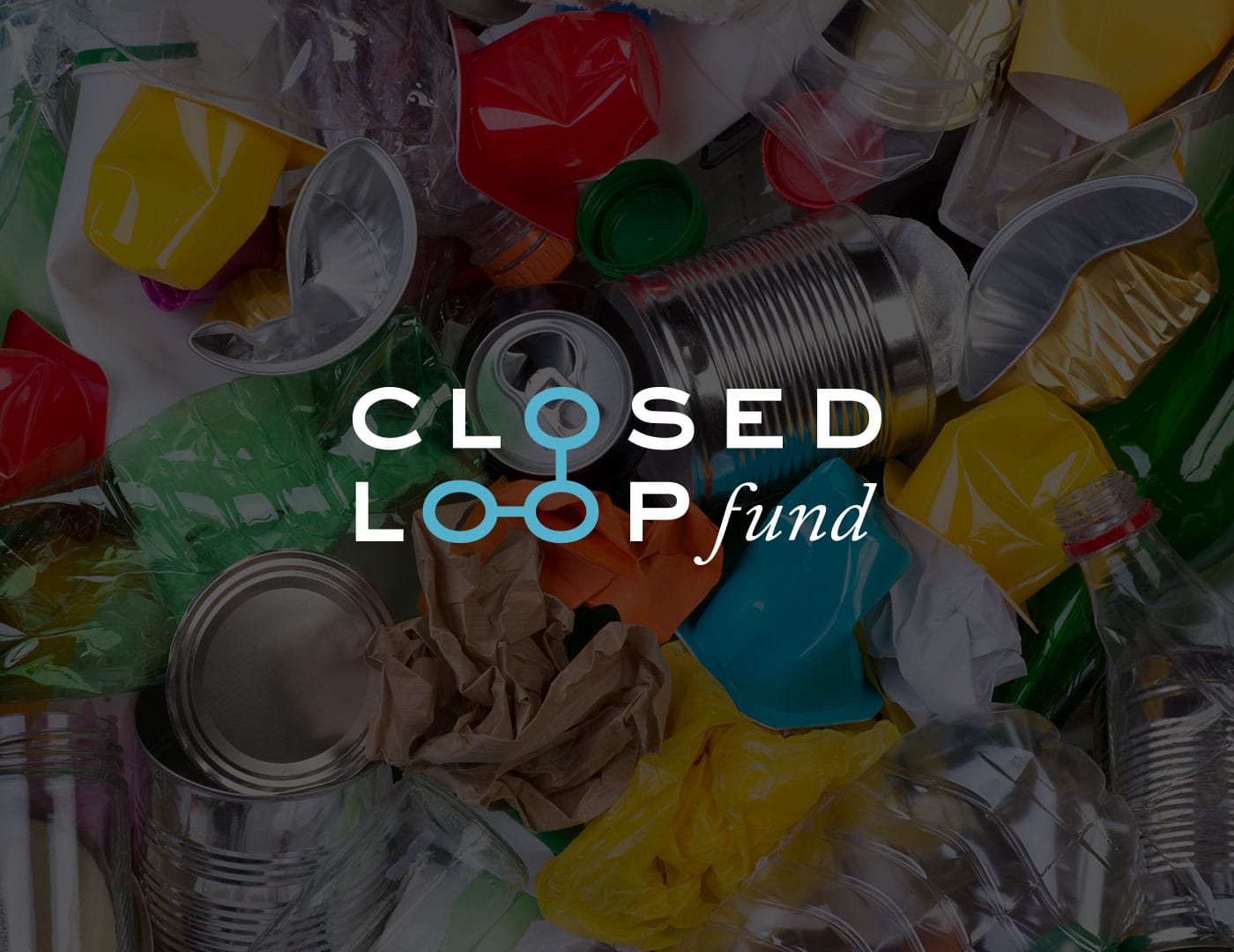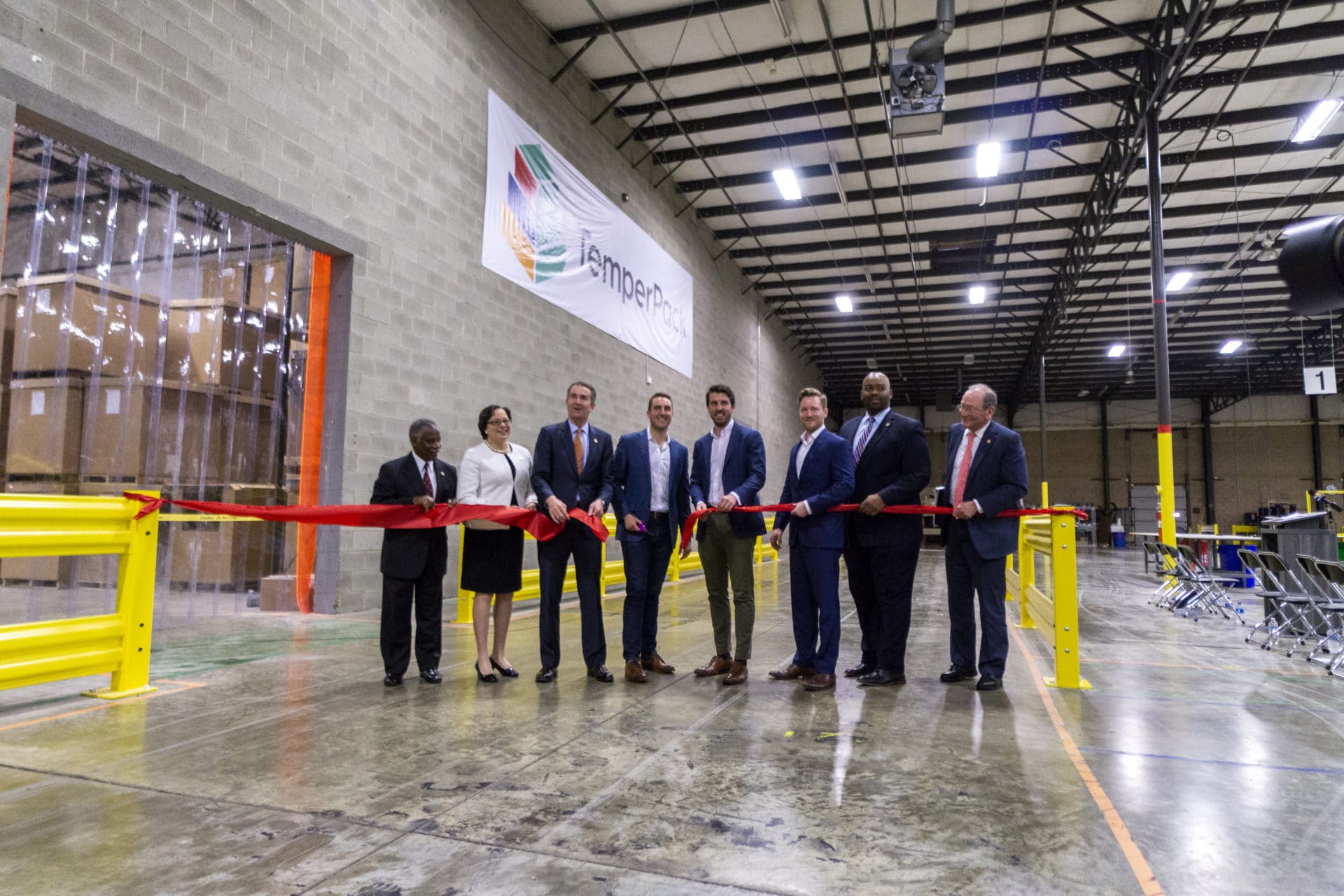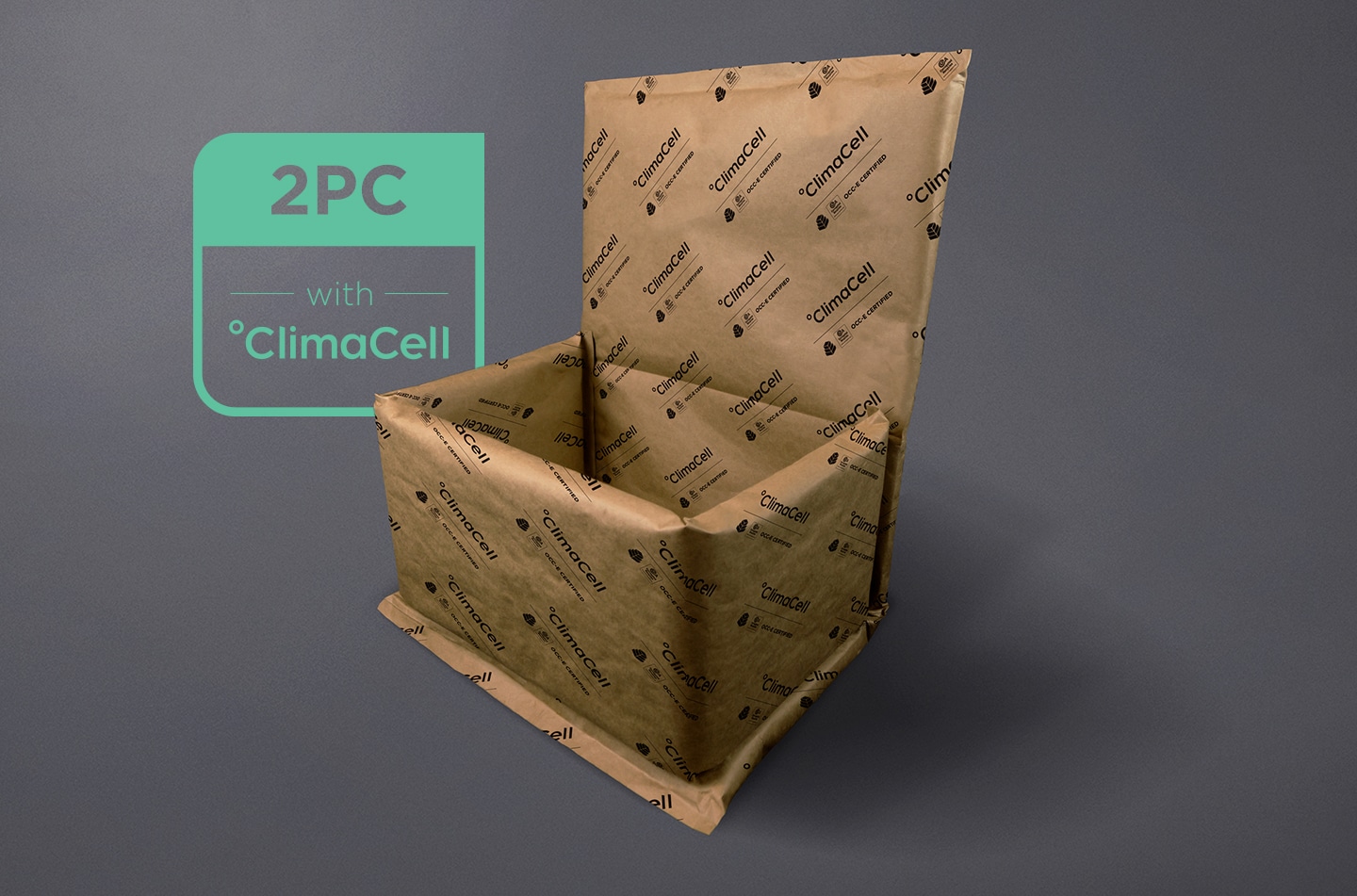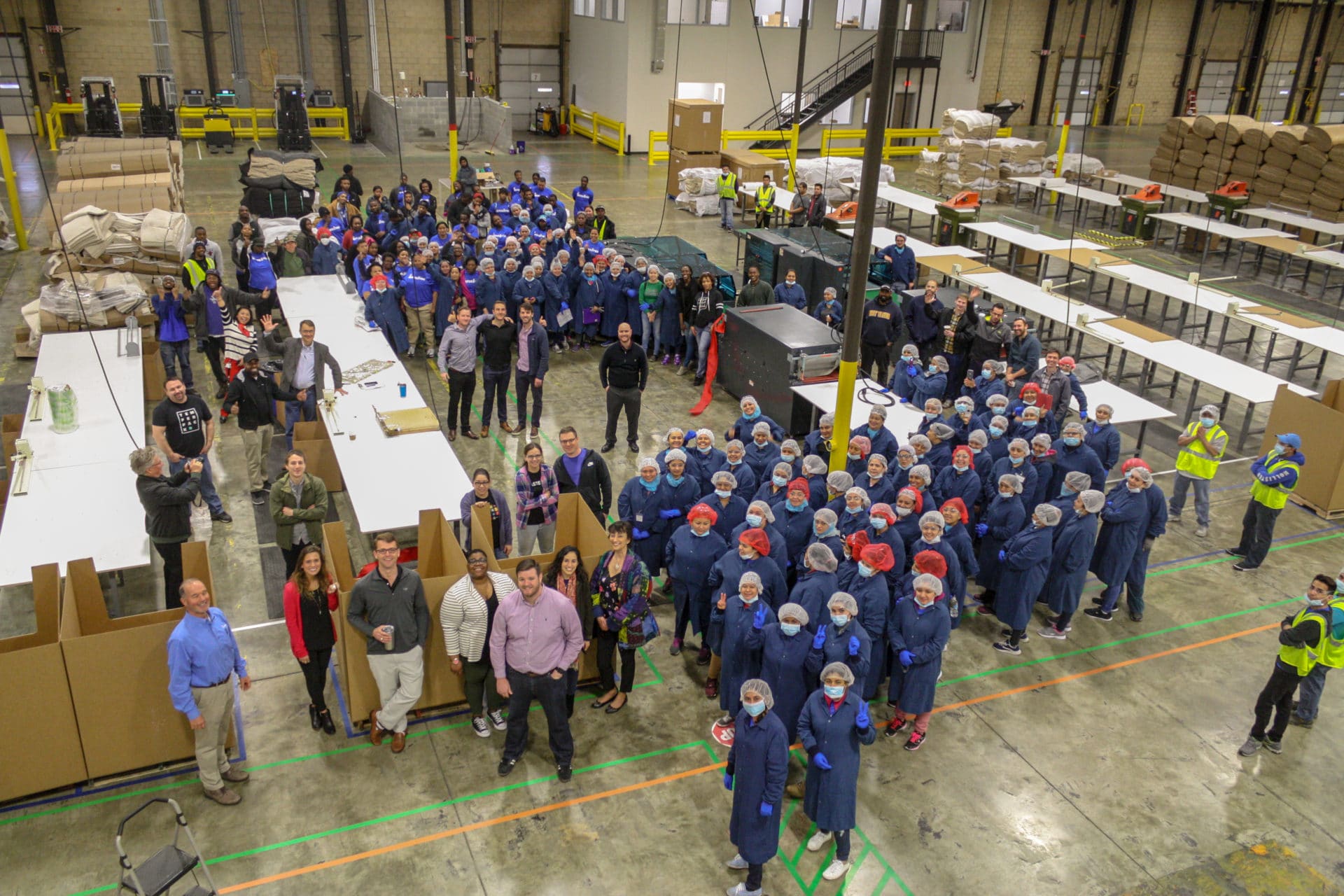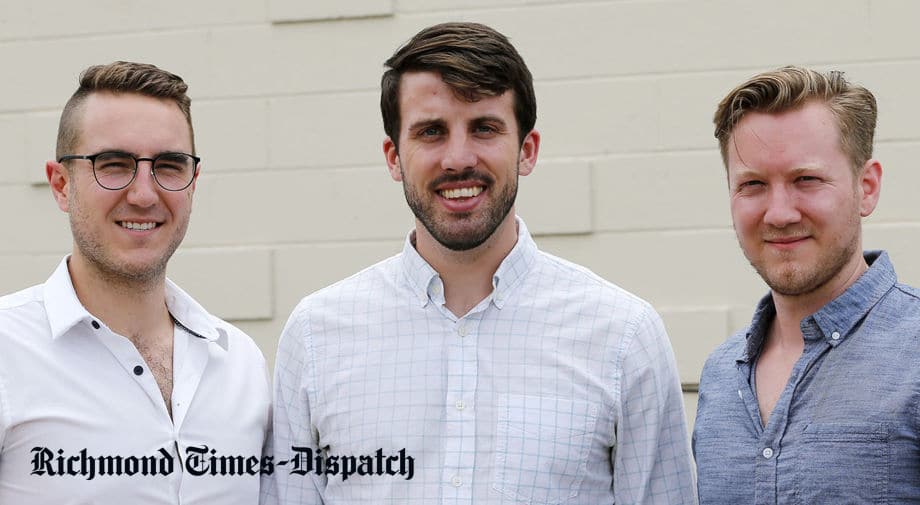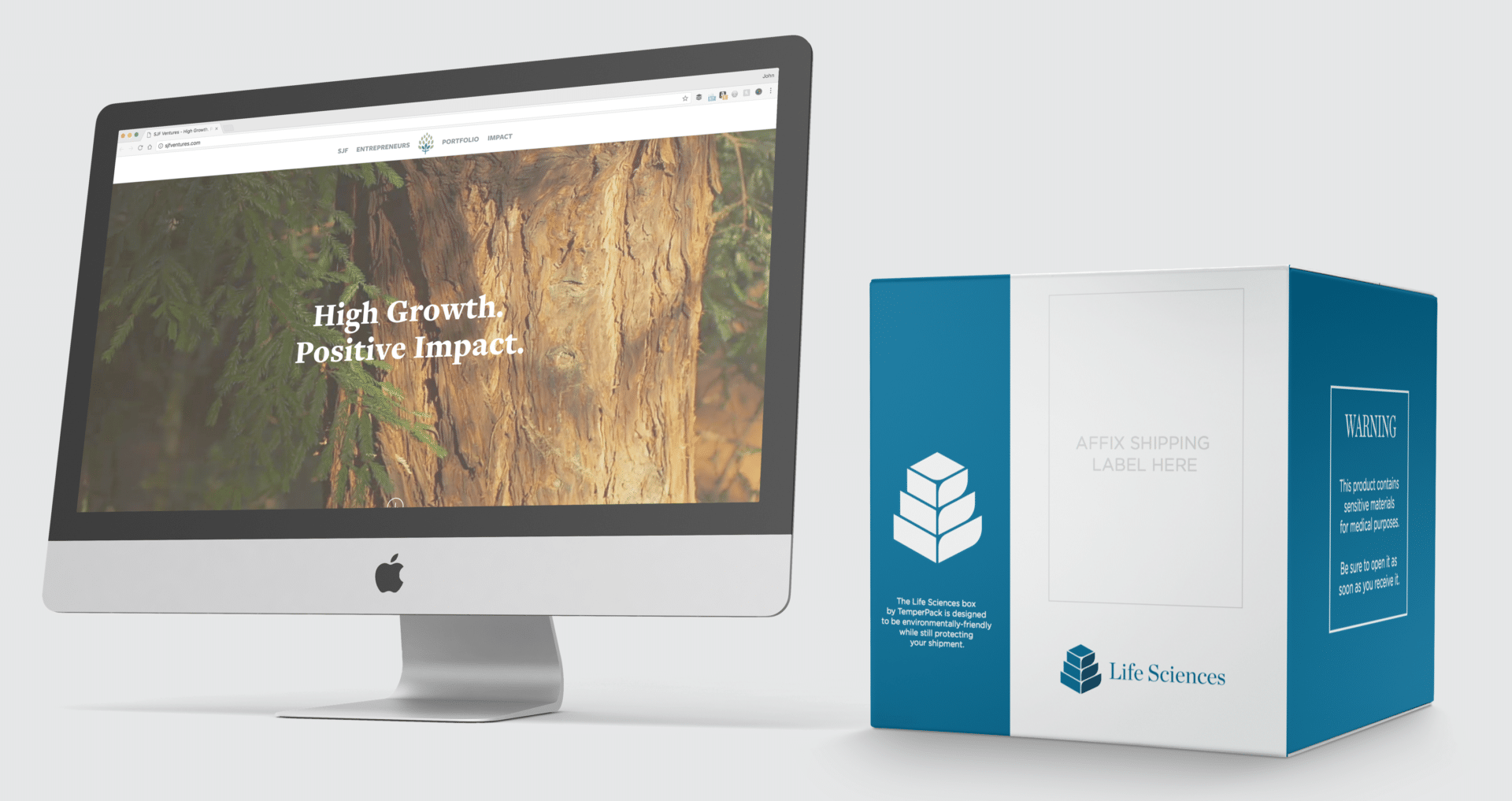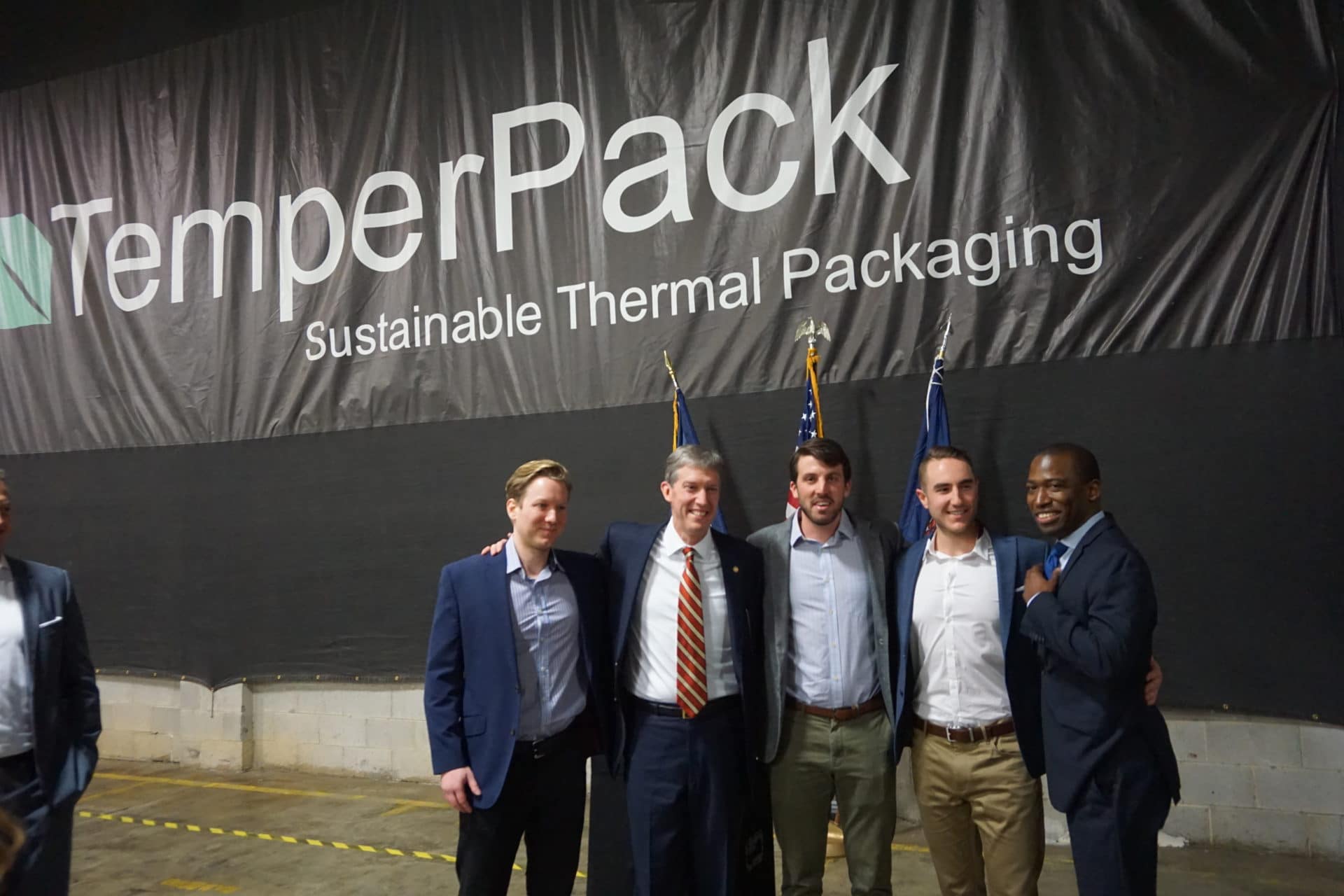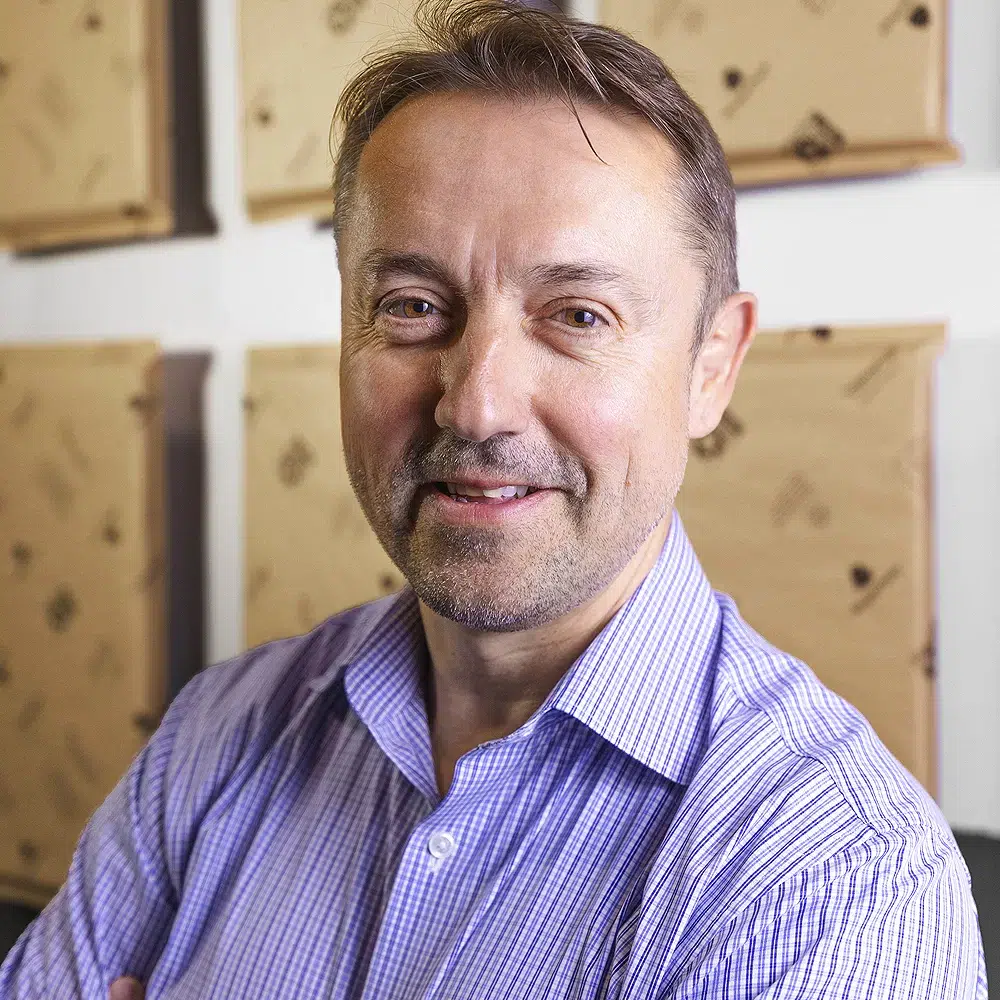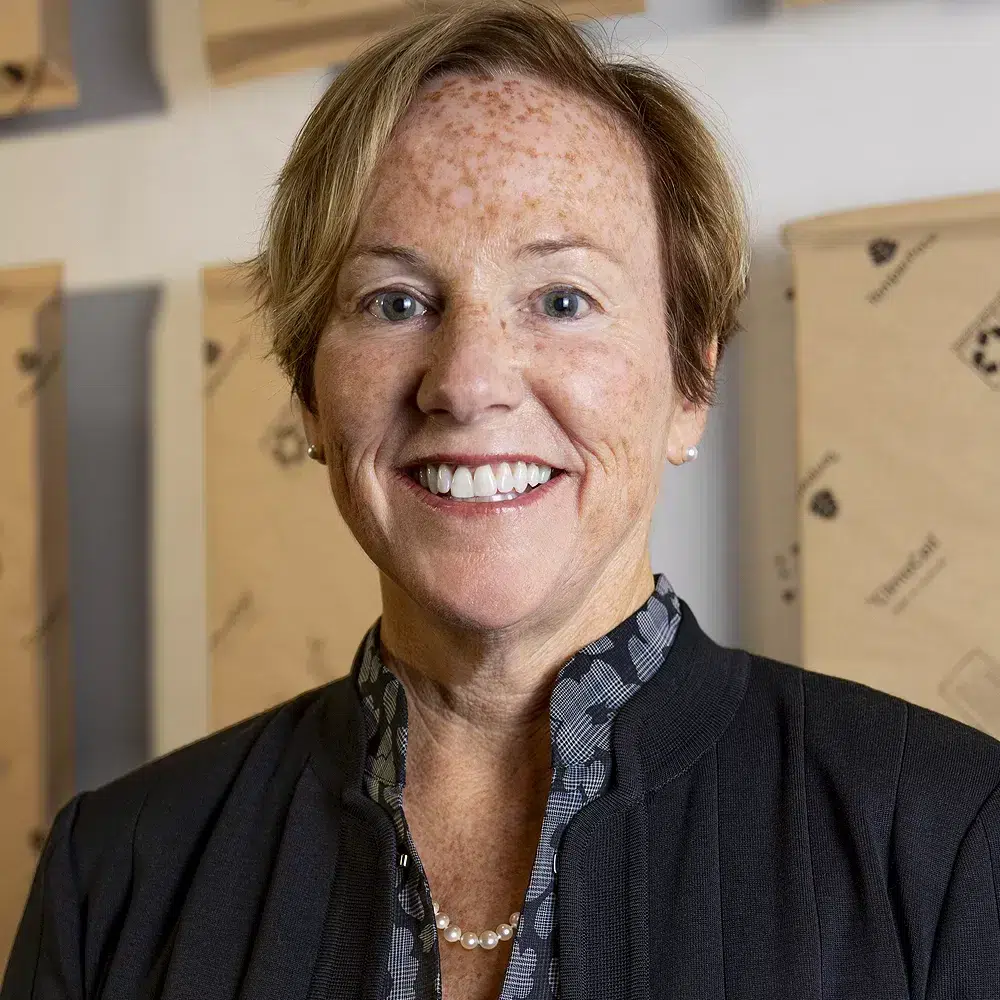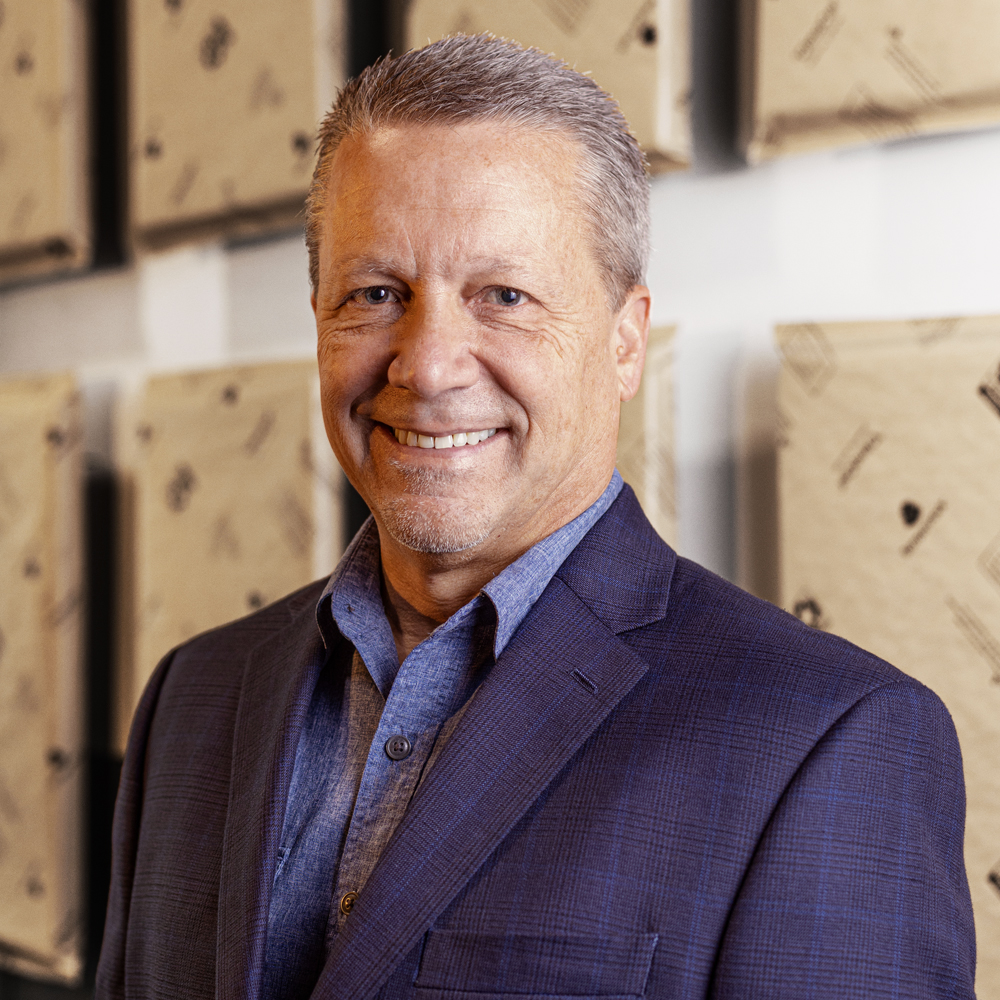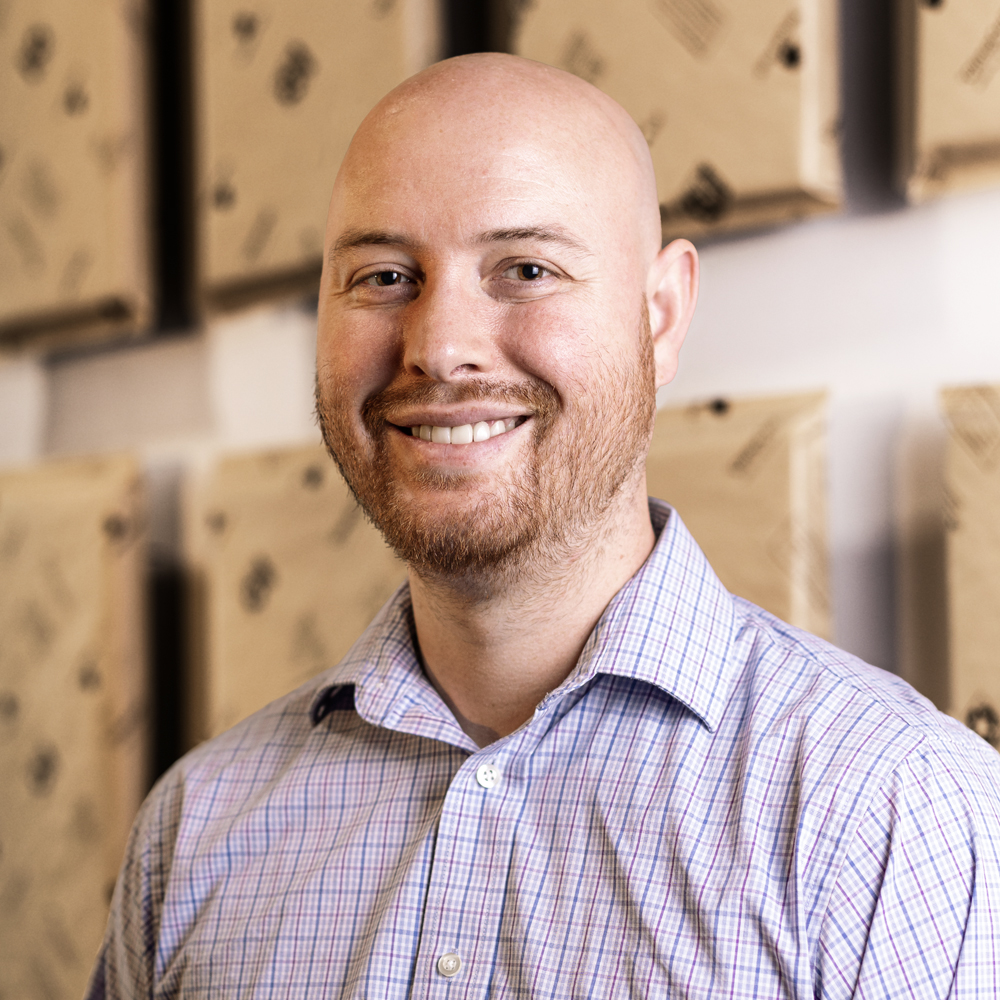Fast-growing TemperPack expanding operations into Henrico, creating 141 new jobs
Richmond Times-Dispatch – TemperPack, a Richmond-based manufacturer of sustainable packaging technology for perishable goods, has expanded its local operations and plans to create 141 jobs.
The company, which previously operated in a 44,000-square-foot plant on Castlewood Road in South Richmond, moved its manufacturing in April to a 130,000-square-foot plant at 4447 Carolina Ave. in eastern Henrico County.
TemperPack announced plans last year to expand operations in Henrico. Gov. Ralph Northam participated in a ribbon cutting Monday and announced the job creation figures.
With the larger facility, “we expect to be able to produce substantially more material for our clients,” said John Briney, the company’s director of marketing.
The company had expanded its headquarters and manufacturing operation on Castlewood Road off Jefferson Davis Highway last year, but it is no longer running its manufacturing at that site, Briney said Monday.
It still has its corporate headquarters and research and development offices just off Decatur Street in South Richmond, but the company is outfitting the Henrico plant to eventually house those offices, too.
TemperPack will hire 141 employees. Some will be full-time salary positions but the bulk of the jobs will be for hourly personnel who typically work 40 hours a week in the plant, Briney said.
The company now has about 55 full-time employees and about 300 hourly personnel. The new plant can accommodate 450 to 500 hourly personnel, he said.
Last year, the company also opened a second manufacturing facility in Las Vegas to supply West Coast customers.
TemperPack was founded as a garage business in Maryland in 2014 by three friends — Brian Powers, James McGoff and Charles Vincent.
They had the idea for the venture after working on a college business competition in which they developed a way to make environmentally friendly insulation using jute fiber. Products are used for shipping perishable materials such as food and pharmaceuticals.
The company’s growth has been propelled by demand for insulation in e-commerce, including shipping prepared meals.
Most of the company’s demand is still coming from the food-shipping industry, said Brian Powers, the company’s co-founder and CEO.
“We are making a big push into pharmaceuticals now as well,” he said. “We expect that to be a big category for us.”
Temperpack moved its operations to the Richmond area in 2015.
At the new facility in Henrico, the company also will make a proprietary insulation material called ClimaCell that is fully curbside recyclable.
Powers said the company has a patent pending on the new insulation product. “We have been working on it for two years, and we are investing in a lot of equipment to launch this,” he said.
The expansions come as a result of a $10 million funding round in July by several investment firms.
“With the rise in consumers ordering groceries, meals and medication online, TemperPack tapped into a booming shipping market, and created an environmentally friendly product that comes with less waste than traditional packaging,” Northam said in a statement.
(804) 775-8123
TemperPack Launches ClimaCell™, a Certified Recyclable Packaging Solution for Perishable Shipments
RICHMOND, Va., May 10, 2018 /PRNewswire/ — TemperPack, a leader in sustainable packaging, announced today the launch of ClimaCell™, a paper-based insulator that provides an alternative to commonly used insulating materials such as EPS foam (Styrofoam®) coolers.
ClimaCell™ represents a significant breakthrough in packaging technology, allowing companies to protect temperature sensitive shipments for up to 80 hours while significantly reducing packaging waste. Unlike many insulation materials in use today, ClimaCell™ is certified to the standards of the Fibre Box Association and the American Forest & Paper Association (AF&PA) and can be recycled alongside corrugated boxes.
“When a package shows up at the door, almost everyone knows what to do with the cardboard box afterwards – throw it in the blue bin. In fact, people get this right 93% of the time,” explained James McGoff, TemperPack’s Co-CEO. “With the massive growth in e-commerce fueled perishables like food and medicine, we wanted to introduce ‘guilt-free’ insulation that was just as easy to recycle as the cardboard box it came in.”
At current productions rates, the World Economic Forum predicts that the amount of plastic in the ocean will outweigh fish pound for pound by 2050. Packaging is a major contributor, accounting for nearly a third of municipal waste. Because they are made from foamed plastic, almost all traditional insulation materials have been incompatible with curbside recycling. In addition to being certified for curbside recyclability, ClimaCell was developed with an emphasis on maximizing thermal performance and moisture resistance, while minimizing weight and storage space. The company allows for fully customized graphics and messaging to be printed directly on the insulation. “We found that companies in this space put a high value on communicating their sustainability efforts to their end consumers, and we wanted to offer something that looks as good as it performs,” explained John Briney, TemperPack’s Director of Marketing.
About TemperPack
TemperPack seeks to solve the world’s packaging problems through sustainable design. The company was born out of a desire to reduce the amount of unsustainable packaging that correlated with the rising world of e-commerce delivery. The company specializes in bringing custom packaging solutions to scale in the perishable food and life sciences industries. Today, TemperPack operates three facilities across the country and is rapidly expanding its reach in the perishable and cold chain shipping market, all with the goal of bringing smarter packaging to the end recipient.
To learn more, visit www.temperpack.com/climacell
Contact:
John Briney
[email protected]
Related Links
http://www.temperpack.com
TemperPack Expands East Coast Operations to State-of-the-Art Facility in Richmond
RICHMOND, Va., May 1, 2018 /PRNewswire/ — TemperPack, a sustainable thermal packaging company, recently expanded its Richmond operation into a new facility on Carolina Avenue in North Richmond. The new facility is four times larger than the previous and will allow TemperPack to increase production throughput to meet growing business demand going into the summer season. The move is a testament to the growth seen over the past three years since TemperPack’s founding and paves the way for the company to increase its daily workforce by over 60 percent.
TemperPack held a ribbon cutting ceremony at their new facility on Carolina Avenue with employees from their east coast operation.
TemperPack’s manufacturing personnel is the driving force behind its ability to produce hundreds of thousands of insulated box-liners each week. This experienced, nimble crew allows the company to bring R&D innovations from concept to production, providing the best products available for specific client needs.
The larger space also allows for management to rethink logistical workflows within the facility to maximize output. “Our team takes pride in designing state-of-the-art production facilities that reflects our company’s strong commitment to safety, quality and operational excellence,” commented Charles Vincent, TemperPack’s CTO. “The Carolina Avenue facility, equipped with an optimized plant layout and production workflow, is geared towards supporting the next phase of growth of TemperPack.” This planned approach to operations is a template that TemperPack looks to reproduce in other locations as the company continues to grow.
The new facility is also the company’s first step in shifting toward a large-scale manufacturing operation by bringing more of the supply chain in-house. This effort to become a more fully integrated company will allow TemperPack to grow even faster and supply their clients with the best insulating products at a scale previously unattainable.
About TemperPack
Founded in 2015, TemperPack solves thermal packaging problems through sustainable design. The company was born out of a desire to reduce the amount of unsustainable packaging that correlated with the rising world of e-commerce delivery. They specialize in bringing custom solutions for clients to scale in the perishable food and life sciences industries. Today, TemperPack operates two facilities in Virginia and Nevada and is rapidly expanding its reach in the perishable and cold chain shipping market, all with the goal of reducing the amount of packaging that ends up in landfills.
Media Contact
John Briney, TemperPack
[email protected]
Related Links
http://www.temperpack.com
Richmond-based TemperPack sees rapid growth
A growing taste for home-delivered fresh foods and meal kits has helped fuel rapid growth for Richmond-based TemperPack, a business created just a few years ago by three young friends working in a garage in Maryland.
A college project prompted the co-founders — Brian Powers, James McGoff and Charles Vincent — to start thinking about innovative ways of keeping perishable goods fresh during shipping.
Now, TemperPack, which makes recycled, sustainable insulation materials, has grown from a three-man operation to employ about 350 people in two cities, including more than 50 full-time, professional staff and hundreds of contract manufacturing employees.
At its 44,000-square-foot plant on Castlewood Road in South Richmond, the company churns out millions of pounds per year of insulation fabric, made from recycled cotton and coffee bags.
“We have grown extremely quickly,” said Powers, its co-CEO. The privately held company does not disclose financial specifics, but Powers said sales jumped 500 percent last year, and “we are set to more than double this year.”
TemperPack is now supplying about 45 customers that use its insulation sheets in their packaging. Growth has been especially hot among the numerous e-commerce companies that have sprung up to sell meal kits for home delivery, and the company sees even bigger opportunities in the shipping of temperature-sensitive pharmaceuticals.
Thanks to a $10 million funding round in July by several investment firms, TemperPack is expanding its operations and adding jobs. The company has opened a second manufacturing facility in Las Vegas to supply West Coast customers. In the Richmond area, it plans to move into a 130,000-square-foot plant and office on Carolina Avenue in eastern Henrico County early next year.
“That will be our new headquarters,” said Powers, who expects that the company will add jobs in production, engineering and sales.
***
TemperPack’s growth “is being driven by an e-commerce boom,” said Bob Beckler, a packaging industry veteran and TemperPack’s chairman. Beckler pointed to retail industry estimates that online product sales will grow 8 to 12 percent this year.
“With that kind of growth, it creates some interesting opportunities from a packaging perspective,” he said.
The grocery part of e-commerce is seeing some of the fastest growth right now, Powers said.
“We see reports of 20 percent per year,” he said. “We have seen our customers explode over the last few years — most are four or five times bigger than they were a few years ago.”
Those customers want to reduce the amount and type of packaging needed for shipping perishables.
“Consumers don’t like to get a lot of plastic packaging,” Powers said.
Meal kit makers in particular have been interested in packaging that can keep food shipments at cold temperatures — typically for 24 to 55 hours — with less bulk and more environmental sustainability than plastics or Styrofoam.
“There is a lot of demand for more minimalist packaging,” McGoff said. “Essentially, our product replaces Styrofoam.”
“Our insulation — the product that we engineered and designed — has the same thermal properties as Styrofoam,” but is easier to ship, said Vincent, the company’s chief technology officer. “Plus, it has a whole sustainability profile.”
TemperPack’s recycling of materials to make insulation reduces waste, and the company has a premium insulation material that can be composted.
The co-founders bring “complementary backgrounds and strengths” to the business, Beckler said. McGoff brings training in materials science, and Vincent brings expertise in process engineering, while Powers has business and finance prowess.
“These guys are fearless,” Beckler said. “They are not afraid to innovate and take risks and try new things in a market that historically has been very conservative. The tendency in packaging is to standardize and run large volumes. These guys have taken the opposite approach, which is to customize and meet the market’s needs in very agile ways. That is what is working in this space, and that is why a small company like this can be very successful.”
***
The company’s roots were planted in 2012, when the co-founders were in college and worked together in a business plan competition.
Powers and McGoff had gone to high school together in Washington, D.C., and Powers attended the University of Pennsylvania, where he studied finance. McGoff went to McGill University in Montreal, Canada, where he met Vincent in the school’s materials engineering program.
“We partnered up for a business competition,” Powers said. “What we made was a high-tech cooler for food and beverage products.”
The judges suggested the trio continue to develop their ideas for cold-chain packaging, “so we started developing a product for transportation of temperature-sensitive pharmaceutical products,” Powers said.
That got them the backing of one large, biotech company, but they were also approached by food companies that, at the time, were just starting to ship fresh foods to customers who order them online as part of memberships in meal kit or grocery delivery plans.
McGoff said they researched hundreds of potential materials for alternative insulation, even briefly considering spider silk. Ultimately, they settled on jute, a plant-based fiber mostly produced in Asian countries that is one of the more common, affordable and renewable natural fibers in the world, used in making rope and bags.
“We use a blend of jute fibers, which we get from coffee bags that are used to transport coffee beans to roasters in the United States,” said McGoff, who is co-CEO. “Once the bags are discarded, they don’t have a use for them.”
TemperPack breaks the bags down into natural fibers and then uses a proprietary process to make insulation blanket.
“We use recycled jute and also recycled cotton which we get from textile mills. It is discarded cotton from the manufacturing process,” Powers said.
Vincent said the company has recycled more than 6 million pounds of material so far.
***
The co-founders first started developing their products at a small warehouse in Canada, but when they finished school, they moved their operations into the garage at Powers’ parents’ home in the D.C. suburbs of Maryland in 2014.
Vincent moved down from Canada.
“They were kind enough to offer me a room,” he said. “I lived in both James’ and Brian’s parents’ homes for about six to eight months.”
In 2015, they started looking for a larger production space and, with the help of Midlothian-based process engineering firm Productiv Inc., they moved into a 12,000-square-foot warehouse near Richmond International Airport.
The next move was to the larger Castlewood Road plant and, by early next year, the company hopes to occupy the even larger plant on Carolina Avenue.
“We expect to add more manufacturing sites in the future, but Richmond will be our headquarters forever,” Powers said. “Real estate space is affordable, and there is a great talent pool.”
“We’re just getting started,” he said. “We are getting much better every day, especially since our funding progress has accelerated. We are really excited for the next couple of years.”
(804) 775-8123
TemperPack Announces $10 Million Series A Financing led by SJF Ventures
RICHMOND, Va., July 14, 2017 /PRNewswire/ — TemperPack (www.temperpack.com), the leader in earth-friendly packaging for insulated, temperature-sensitive goods, announced today that it has raised $10 million to expand its operations and further commercialize innovative, new products. SJF Ventures led the fundraising round, joined by Interplay Ventures, Third Prime Capital and Dolik Ventures. Robert Beckler, formerly the president of packaging at WestRock, an international paper and packaging company, also participated in the round and will be joining the Board as Executive Chairman.
Concerned with the steep increase in packaging waste from e-commerce, materials engineers James McGoff andCharles Vincent partnered with Brian Powers to found TemperPack, with the aim of lowering the environmental impact of shipping while improving the customer experience. Together, they developed and launched TemperPack in 2014 and have released a range of powerful insulation products that can be easily disposed of into existing recycling and composting facilities. The company currently serves over 40 customers including many market leaders within the meal-kit and grocery e-commerce sectors.
“We are excited to be partnering with SJF and the other syndicate partners in this next phase of growth for the company. TemperPack grew sales more than 500% in 2016 and the company is now ready to bring in outside capital to help meet growing customer and market needs for disruptive packaging and insulation products,” says Brian Powers, co-founder and co-CEO of TemperPack. “SJF Ventures, a leading impact investment fund, is highly aligned with our commitment to sustainability and environmental stewardship.“
Rapidly growing consumer demand for convenient delivery of perishable products such as produce, frozen meats and fish, meal-kits, prepared meals, and pharmaceuticals is driving significant packaging disposal concerns for retailers and suppliers as well as end-consumers. TemperPack’s mission is to provide these booming industries with sustainable packaging materials that consumers can feel great about.
“TemperPack addresses a core pain point for the e-commerce sector today,” says Cody Nystrom, Managing Director of SJF Ventures. “Their products replace environmentally-damaging materials such as styrofoam and other petroleum-derived insulation with a suite of proprietary, temperature-controlled products proven durable, safe and cost-efficient. TemperPack stood out as a highly innovative company purpose-built to compete effectively against the existing, uninspiring insulation solutions. The company refutes perceptions that ‘green’ should require meaningful trade-offs in effectiveness or price.” Cody Nystrom will also be joining the TemperPack Board.
According to Robert Beckler, Executive Chairman, “e-commerce is driving revolutionary change in the way consumers experience brands. Increasingly, packaging influences this consumer experience in a lasting way. TemperPack has tapped directly into this market trend, by providing its customers with a unique suite of insulating products that are not only great for the environment, but significantly enhance the brand experience.“
The company currently ships millions of insulation products each month to over 40 customers. Since 2015, TemperPack has recycled more than 5 million pounds of plant fiber, and is on track to divert more than 10 million pounds of plastic foam from landfills, preventing over 10 million pounds of carbon emissions from its sustainable alternatives.
About TemperPack
TemperPack brings sustainable packaging technology to companies that ship perishable goods such as food and pharmaceuticals. TemperPack helps companies reduce their environmental impact by using packaging their customers can feel great about. TemperPack’s proprietary insulated packaging ensures safe delivery in a sustainable manner. Headquartered in Richmond, Virginia, the company employs more than 200 associates, and is on track to create an additional 150 jobs in Virginia and Nevada by 2018.
About SJF Ventures
Founded in 1999, SJF Ventures invests in high-growth companies creating a healthier, smarter and cleaner future. Our mission is to catalyze the development of highly successful businesses driving lasting, positive changes. www.sjfventures.com
Media Contacts:
John Briney, TemperPack
[email protected]
Cody Nystrom, SJF Ventures
[email protected]
SOURCE TemperPack
Related Links
Sustainable packaging company to expand operations in South Richmond, creating 23 new jobs
TemperPack, a manufacturer of sustainable packaging technology for perishable goods, announced Wednesday that it will invest $2 million to expand its headquarters and manufacturing operation in South Richmond, creating 23 new jobs.
The company, at 3807 Castlewood Road off Jefferson Davis Highway, will purchase production equipment that boosts capacity to create products for new markets.
“We’re seeing tremendous growth in the e-grocery category, which is what we are predominantly focused on,” said John Briney, spokesman for the packaging company.
TemperPack, which celebrated its two-year anniversary last week, creates thermal insulation products used inside such products as meal-delivery kits.
The company has more than 20 clients, all in the business of shipping perishable items, Briney said, adding that Hello Fresh is one of its biggest clients.
TemperPack employs 20 full-time salaried workers and about 100 factory workers. The new jobs primarily will be salaried roles, Briney said. “We’re looking to expand our management and promote within as we train people in the factory to take on more responsibility.”
TemperPack plans to double its salaried employee count over a two-year period and new employees will be trained to operate the new production machinery through the Virginia Jobs Investment Program, Gov. Terry McAuliffe’s office said Wednesday.
“Their dynamic, affordable product will help companies create less packaging waste, which is a critical issue facing businesses and the environment today with the surge of e-commerce,” McAuliffe said in a statement.
“This young company highlights what entrepreneurs can accomplish in the commonwealth, while also making a difference in global sustainability.”
The company uses either plant-based materials or recyclable plastic, Briney said. It started with jute — a plant-based shipping material typically used to ship cocoa beans and coffee beans — and added cotton, both certifiably bio-based materials that can be composted.
“As we look to grow, we are focusing on the market trend to make more products that are fully curbside recyclable as well as compostable,” Briney said. “We want to lower the environmental impact.”
Traditional insulation materials for shipping fresh products include Styrofoam and a foam plastic that can’t be composted or recycled.
“Our mission is to help companies deliver more to consumers while wasting less,” said TemperPack co-founder Brian Powers.
Briney said the company’s sustainable products are capable of holding a cold temperature for 48 to 72 hours, depending on where the product is shipped.
“We spec our products to our clients’ needs, so if their shipping area is predominantly in hotter regions we can create cold chain insulation that holds up regardless of the climate,” Briney said.
Richmond Mayor Levar Stoney said in a statement that he is pleased TemperPack has chosen to grow and expand in Richmond.
“We are especially enthused to see this kind of growth in a sustainability oriented company working so proactively to mitigate the environmental impacts of commerce,” he said.
(804) 775-8023
